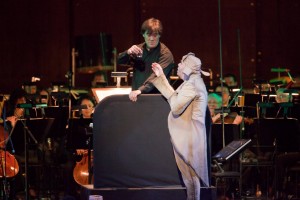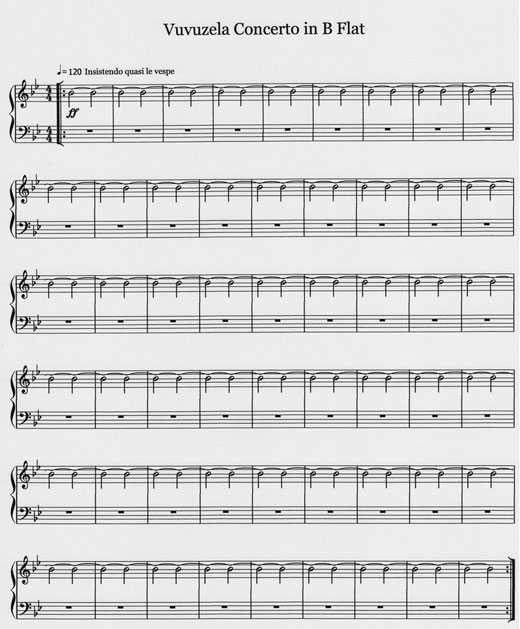 The last thing that Alan Gilbert or the New York Philharmonic needs is another affirmation that they have done something important and memorable by producing Le Grand Macabre in May. There were three (perhaps more?) New York Times articles over 11 days (May 18th, 23rd, 28th), an nice summary over on Anne Midgette’s Washington Post blog, and from just a few days ago there was this over at Newsweek. Of course our own site added to the frenzy of press/buzz here, here, here, here, here, here, and here – and with good reason! I’m quite happy to throw my hat in the camp who counts themselves lucky to be one of the few to see this amazing production. It was everything that I had hoped it would be, and I even got a fancy collectors-edition-style booklet of the libretto with the program.
The last thing that Alan Gilbert or the New York Philharmonic needs is another affirmation that they have done something important and memorable by producing Le Grand Macabre in May. There were three (perhaps more?) New York Times articles over 11 days (May 18th, 23rd, 28th), an nice summary over on Anne Midgette’s Washington Post blog, and from just a few days ago there was this over at Newsweek. Of course our own site added to the frenzy of press/buzz here, here, here, here, here, here, and here – and with good reason! I’m quite happy to throw my hat in the camp who counts themselves lucky to be one of the few to see this amazing production. It was everything that I had hoped it would be, and I even got a fancy collectors-edition-style booklet of the libretto with the program.
Some time has gone by since the production (I’m late on my contribution to this, as per my usual), I think it’s enough for me to say that I thought it was great, and to move on to some questions.
After reading all of the press about the production, it seems that everyone who saw it easily and quickly deemed it a huge success. But I’d love to know if the Philharmonic thought it was a success! All three nights sold-out, but we know that a sold-out show doesn’t necessarily mean success. Le Grand Macabre was without question an unusual and elaborate production and must have come with a tremendous expense – just watch this video. All the extra marketing, and YouTube videos; all the lighting and projections and costumes; (presumably) all the extra rehearsals and percussion instruments; etc, etc, etc. I think the big question is: was this a successful enough event that the Philharmonic will continue these kinds of productions in the future? Was dealing with disgruntled subscribers worth it? Was the cost of the “spectacle” worth it? Was all the marketing and rogue videos worth it?
Of course I hope that the answer to all of these questions is yes. I would love to see the New York Philharmonic continue to support contemporary music the way it has since Mr. Gilbert has arrived. It’s clear that he feels very strongly about new music: he brought in Magnus Lindberg, started the Contact! series, and made this incredible Ligeti production happen. I want to know what else he has planned and what else the Philharmonic is willing and capable of doing. But, it seems that a lot of it depends on whether or not the Philharmonic thought Macabre was a success.
 As you know if you read Christian Carey’s
As you know if you read Christian Carey’s 
 The International Contemporary Ensemble will be featured at 7 PM tonight on
The International Contemporary Ensemble will be featured at 7 PM tonight on 


